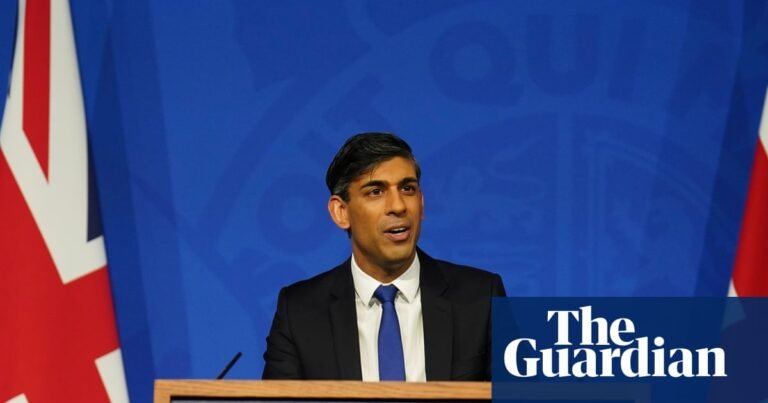A pattern of “hostile language” in news reports and UK parliamentary debates is more likely to describe people of colour as immigrants, or with less sympathy, researchers have found.
The race equality thinktank the Runnymede Trust analysed more than 63m words from 52,990 news articles and 317 House of Commons debates on immigration between 2019 and the general election in July 2024.
Researchers concluded that the use of language about race and immigration by media and politicians has helped shape “the increase in reactionary politics and backlash against antiracism which has emboldened the far right in this country”.
The report, A Hostile Environment: Language, Race, Surveillance and the Media is the second in a series. The first phase of the research analysed parliamentary and media reports from 2010 to 2014. It found that “illegal” was the most commonly linked word to migrants in parliamentary debates, which the researchers said reinforced the perception of migration as inherently unlawful.
The latest report found that between 2019 and 2024 “the word ‘illegal’ has became an even stronger word association with the terms ‘migrant’ and ‘immigrant’ in both news and parliamentary debates than it was in the 2010–14 period”, which, the authors claim, “shows that the defining characteristic of migrants has been cemented as illegality over the past decade”.
The study claims that since 2014, “hostile environment” immigration policies have worked to “expand and normalise the surveillance state” through legislation, reporting measures and data sharing.
When the researchers filtered “words associated with immigrants” in news data by nationality, religion, ethnicity and geographical location, they found the word “Mexican” was most strongly associated, “typically in the context of news reports about the USA”.
Referring to the second- and third-placed terms in that category, the report added that “Chinese” and “Indian” were also very strongly associated with “immigrant(s)”, usually when reporting about immigration “in the UK context”.
The other most commonly used signifiers of identity associated with the word “immigrants” in news were “Asian”, “Irish”, “Haitian”, “Muslim”, “Jewish”, “non-white”, “Venezuelan”, “Cuban” and “African”.
“Overwhelmingly, when the UK news media represents immigrants, the image that is invoked … is of an ethnically minoritised person,” the report added.
Meanwhile, in Hansard data of parliamentary debates, the top 10 words most strongly associated with migration were “illegal”, “net”, “committee”, “act”, “bill”, “tackle”, “level”, “reduce”, “system,” and “mass”.
The report said parliamentarians “are more likely to use humanising terms when talking about Ukrainians” – such as “guest”, “brave”, “community” or “diaspora”.
The report claims: “Racist discourse from the highest levels of UK society, including politicians and the media, is used to frame immigration as an existential threat to the British way of life … this works to justify ever more hostile immigration policies.”
skip past newsletter promotion
Our morning email breaks down the key stories of the day, telling you what’s happening and why it matters
Privacy Notice: Newsletters may contain info about charities, online ads, and content funded by outside parties. For more information see our Privacy Policy. We use Google reCaptcha to protect our website and the Google Privacy Policy and Terms of Service apply.
after newsletter promotion
The report added: “One stark example of the partnership between parliament and the news media in framing public perceptions of immigration in the UK can be found in connection with the ‘stop the boats’ political slogan.
“The explicit use of this slogan by rioters in the summer of 2024 on banners and in chants demonstrates that the hostile language we have identified in our analysis has emboldened sectors of the UK public to engage in racist violence.
“Throughout the 2019-24 period, news articles and political debates disseminating this kind of narrative come out in fairly close alignment with each other, both reaching their peak in 2023 and declining slightly into 2024, but with still very high levels of usage.”
The Home Office has been approached for comment.
The Ministry of Housing, Communities and Local Government said the disorder of August 2024 – which followed the Southport attack – ‘“highlighted the need for a new approach to community cohesion” and that a task force was developing a strategic national approach, while £1.5bn was being invested in community services in 75 areas nationwide.
https://www.theguardian.com/uk-news/2025/aug/02/language-on-immigration-in-uk-news-and-politics-found-to-have-shaped-backlash-against-antiracism
